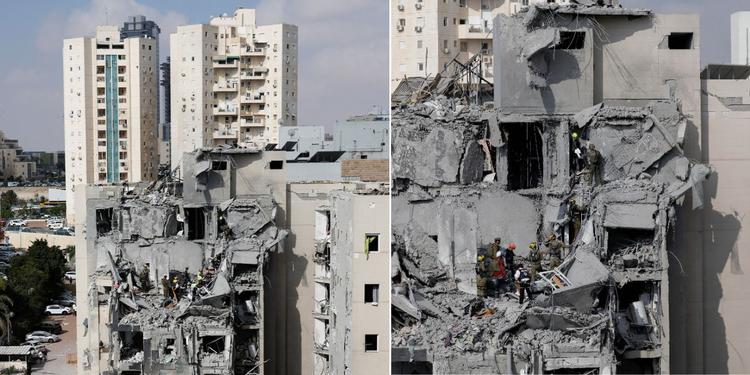At least four people were killed and several others injured early Tuesday when Iran launched a series of missile attacks on Israel, just hours before a ceasefire—mediated by former U.S. President Donald Trump—was declared.
Pre-Dawn Assault Jolts Israel
The strikes began shortly after 4 a.m. local time, triggering air raid sirens and sending residents rushing to shelters. Iranian Foreign Minister Abbas Araghchi said Tehran would cease hostilities if Israel ended its airstrikes.

This marked a continuation of hostilities that escalated on June 13, when Israel targeted Iranian nuclear and missile facilities. On Monday, Iran had also struck the U.S. Al Udeid Air Base in Qatar in retaliation for American airstrikes on its underground nuclear bunkers—an operation that reportedly involved 30,000-pound bunker-buster bombs.
Iran’s Warning and Justification
Iran’s Supreme Leader Ayatollah Ali Khamenei defended the strikes, insisting:
“We did not assault anyone, and we will never accept being assaulted by anyone… We will not submit to anyone’s aggression.”
Tehran said it had warned both U.S. and Qatari authorities in advance of the strike, potentially limiting casualties.
Trump Announces Ceasefire Agreement
Hours after the missile attacks, Donald Trump announced that Iran and Israel had agreed to a ceasefire.
“THE CEASEFIRE IS NOW IN EFFECT. PLEASE DO NOT VIOLATE IT!” Trump wrote on Truth Social.
He described Iran’s missile attack as “very weak” and praised the advance warning, which he said helped avoid American casualties.
“NO Americans were harmed and hardly any damage was done,” he added. Hopefully, this marks the end of further hate.
Israel, Iran Claim Success, Agree to Truce
Israeli Prime Minister Benjamin Netanyahu confirmed Israel’s acceptance of the ceasefire, claiming military objectives had been met.
Iran’s Supreme National Security Council also backed the truce, calling it a “national decision” made after what it termed a “humiliating and exemplary” military response.
“Our forces remain on alert, ready to respond decisively to any further aggression,” the Council stated.

Ceasefire Immediately Tested
Despite the agreement, Israel accused Iran of launching additional missiles after the ceasefire took effect, causing new casualties.
“In light of the severe violation of the ceasefire, we will respond with force,” said IDF Chief of Staff Lt. Gen. Eyal Zamir.
Israeli Defense Minister Israel Katz ordered retaliatory strikes on strategic targets in Tehran. Iran, however, denied launching any post-ceasefire attacks and warned that any further Israeli aggression would provoke a “resolute response.”
Political Fallout and Domestic Divisions
Following the ceasefire announcement, Israeli opposition leader Yair Lapid urged Netanyahu to also pursue peace in Gaza.
“And now Gaza. It’s time to finish it there too. Bring back the hostages, end the war,” Lapid posted.
But within Netanyahu’s own Likud party, critics voiced concerns over the truce with Iran.
“The regime in Iran is not one to negotiate with—it must be defeated,” said Likud MP Dan Illouz. “If not, they will find new ways to strike at Israel.”





